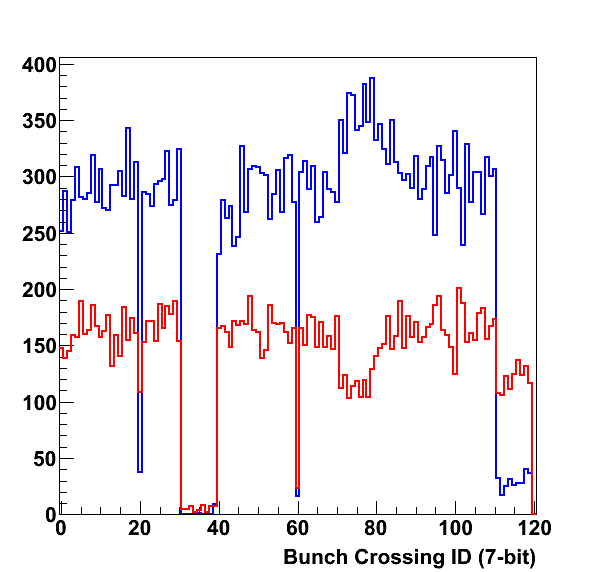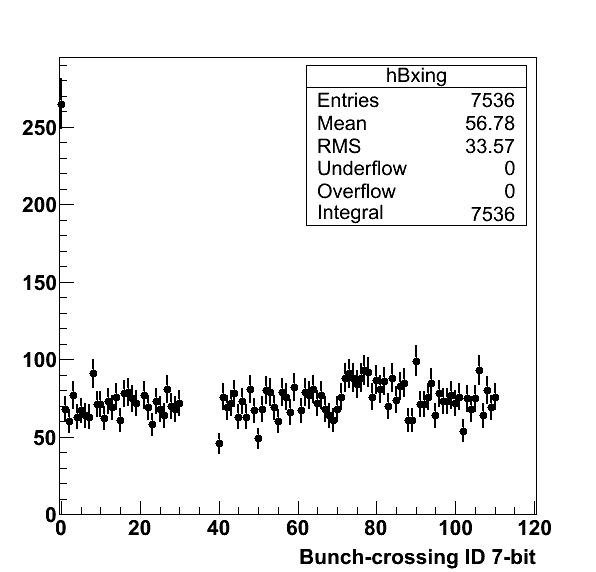- drach09's home page
- Posts
- 2022
- 2020
- June (1)
- 2019
- 2018
- 2017
- 2016
- 2015
- 2014
- December (13)
- November (2)
- October (5)
- September (2)
- August (8)
- July (9)
- June (7)
- May (5)
- April (4)
- March (4)
- February (1)
- January (2)
- 2013
- December (2)
- November (8)
- October (5)
- September (12)
- August (5)
- July (2)
- June (3)
- May (4)
- April (8)
- March (10)
- February (9)
- January (11)
- 2012
- 2011
- October (1)
- My blog
- Post new blog entry
- All blogs
2006 EEMC Neutral Pions: Single-beam Backgrounds (part 1)
Carl has pointed out that it is important to understand our sensitivity to single-beam backgrounds. This is of particular importance to the AN measurement. It was not immediately clear to me how one would estimate these contributions from the eemc-http-mb-L2gamma triggers. We have seen the the abort gaps are quite clean as one would expect given the BBC-coincidence requirement. However, Carl has pointed out there are some events with the eemc-http trigger which does not include a BBC-coincidence requirement. While the events are relatively few, perhaps, they are enough for our precision.
I have run over a portion of the ppProductionTrans data from Run-6, selecting events from the eemc-http trigger. I then sort the bunch-crossing distributions in terms of a BBC-coincidence (BBCE&BBCW) or lack thereof. I define a BBCE or BBCW event by requiring ADC > 10 for a BBC detector.
Figure 1

In Fig. 1 I show the bunch-crossing distributions for BBC-coincidence (blue) or without a BBC-coincidence (red). One can see rather dramatically that both the blue-beam abort gap (111-119) and blue beam kicked bunch (20) are far more noisy in the absence of a BBC-coincidence. This corresponds to the situation where only the yellow beam--which approaches the EEMC from "behind"--is present. This could signal the presence of single-beam backgrounds.
Also, I note that there appears to be a dip in the red distribution and a rise in the blue around 80. I don't recall seeing this in the eemc-http-mb-L2gamma data, but it's possible I missed something. It may be worth looking into this as well.
Figure 2

Interestingly, when I run over Steve's trees selecting the eemc-http trigger, I obtain Fig. 2. One can see the abort gaps are completely empty as are the kicked bunches. Instead, there is a large excess at bunch-crossing ID-0. We are investigating the possibility the abort gaps and kicked bunches are somehow set to 0 in Steve's trees. Examining the di-photon events for this bin-0, I find no evidence of a large contribution getting past our cuts. This alone may signal a rather small contribution to our analyses, yet it would still be good to verify this directly.
- drach09's blog
- Login or register to post comments
